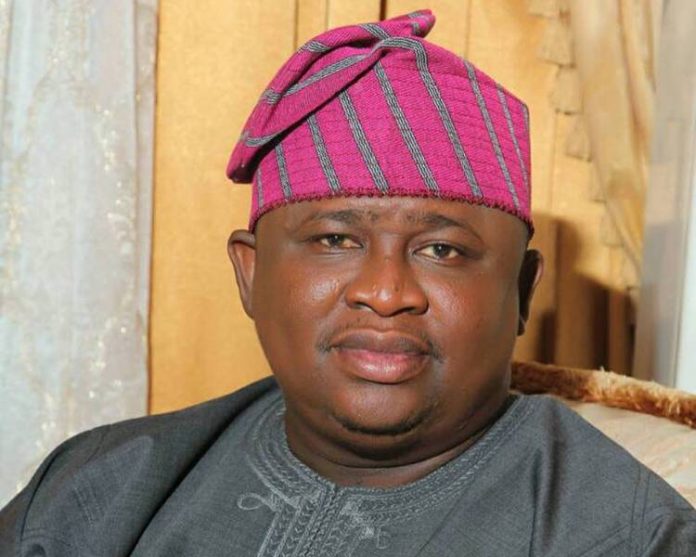As a tech expert with a marketing background, immersed in Lagos’ pulsating digital landscape, I’ve long been fascinated by how narratives shape behaviour, especially when controversy collides with public policy.
Recent headlines have thrust this into sharp focus: the appointment of figures like Ayomiposi Oluwadahunsi, popularly known as Mandy Kiss, a content creator as an ambassador for Lagos State’s Kicks Against Drug Abuse (LASKADA) initiative, and the 2023 collaboration between Azeez Adeshina Fashola, known professionally as Naira Marley and Nigeria’s National Drug Law Enforcement Agency (NDLEA).
These moves, aimed at leveraging “reformed delinquents” to combat drug abuse, have instead ignited online firestorms. But what if I told you this isn’t a doomed tactic? It’s a potential powerhouse, if policy makers apply insights from neuromarketing, consumer psychology, and social theory to execute it flawlessly.
In this opinion piece, I’ll draw from sentiment analyses of these cases to outline a five-step blueprint that turns rebels into effective anti-vice ambassadors, without the ridicule that defeats the purpose.
Let’s confront the backlash head-on. Let us start with a sentiment analysis of Instablog’s tweet announcing Mandy Kiss’ role.
The announcement video received 85 per cent negative public reactions. The replies overflowed with laughing emojis, clown faces, and accusations of hypocrisy, with users quipping things like “Nigerian government no serious at all” or “We’re in End Times.”
These comments echo the 2023 National Drug Law Enforcement Agency (NDLEA) video featuring Naira Marley, whose lyrics once glamorised substances, urging fans to “stop doing drugs.” My review of reactions showed over 80 per cent negativity, amplified by celebrities like Tonto Dikeh, who deemed it the “biggest embarrassment” from any government agency.
Sarcasm dominated: “This country nah skit” or comparisons to absurd endorsements. NDLEA’s clarification that Marley was a collaborator, not an ambassador, came too late, actually, as the damage eroded trust in anti-drug efforts.
These failures stem from a neuromarketing blind spot: the brain’s emotional centre, the amygdala, flares with distrust when messages feel inauthentic, triggering consumer psychology’s “reactance”, a defiant rejection to preserve autonomy.
Socially, Howard Becker’s labelling theory explains why: society brands these figures as deviants, making abrupt redemptions seem forced and ripe for collective mockery. Yet, in a nation where 14.4 per cent of 15-64-year-olds use psychoactive substances (per 2024 data), tapping reformed voices is actually ingenious. They pierce youth echo chambers like no polished official can. The problem isn’t the choice, it’s the execution. Policymakers, here’s your neuromarketing-infused blueprint to redeem rebels without jinxing the mission.
Step 1: Vet for real change, demand proof to forge credibility
Neuromarketing shows that authentic sources activate the prefrontal cortex, building trust from the ground up. Don’t chase follower counts like in the case of Mandy Kiss; insist on verifiable transformation. For someone like Mandy Kiss or Naira Marley, ask for sobriety timelines, therapy endorsements, or a monitored digital footprint for 6-12 months, ensuring the transformation is visible. Announce with ironclad facts: “Mandy has maintaned sobriety for 18 months, verified by an independent body.” This dissolves cognitive dissonance, the mental clash between past scandals and present virtue, silencing sceptics before they start.
Step 2: Storytell the redemption arc – harness vulnerability for emotional bonds
Consumer psychology’s narrative transportation theory reveals how stories immerse us, bypassing cynicism. Skip sterile videos; craft a raw, multi-part series on platforms like X or TikTok detailing the ambassador’s journey from vice to victory. Emotional peaks such as regrets, tears, and triumphs spike oxytocin, the “bonding hormone,” fostering empathy over eye-rolls. Imagine Naira Marley sharing unfiltered tales of his turnaround; it would humanise him, aligning with Erving Goffman’s redemption rituals that allow society to reintegrate deviants through public atonement.
Step 3: Announce smartly; pre-empt backlash with subtle, action-driven reveals
This is where policymakers falter most critically, turning goodwill into gaffes. Neuromarketing warns that surprises alienate; instead, front-load transparency to diffuse reactance. Acknowledge the elephant: “We understand questions about [name]’s past, but here’s why this fits.” Incorporate live Q&A sessions into your execution by the individual. Crucially, time the actions away from scandals and skip a formal announcement altogether. Mandy Kiss just had a controversial case of sleeping with over a hundred men as a Guinness World record, even though it was clarified that such is not monitored.
Opt for organic integration: Picture Mandy Kiss hosting a TikTok/IG live session on drug abuse, vulnerably sharing her story, when a LASKADA official joins to commend her bravery and appoint her on the spot. This shifts perception from “forced PR” to “genuine momentum,” leveraging social proof to preempt mockery.
Step 4: Build community buzz; mobilise herds for positive momentum
Consumer psychology’s social proof principle on the “herd mentality” can work for or against you. In these cases, backlash created a detractor herd; flip it by seeding support by partnering with micro-influencers in the ambassador’s niche (e.g., Marlians for Marley) for early endorsements. Upon public reveal, rally key opinion leaders to amplify the narrative, creating a ripple effect where followers echo positivity. In Lagos’ viral ecosystem, this turns isolated announcements into community-driven movements, outpacing cynics.
Step 5: Loop and adapt; monitor, pivot, and prove impact
Treat this as an agile tech campaign. Use neuromarketing tools like online polls or EEG-inspired feedback to track sentiments in real time. If negativity creeps in, pivot swiftly and release follow-ups showcasing metrics, like “Mandy’s outreach reduced reported youth substance use by X per cent in targeted areas.” This reinforces restorative justice norms, proving the strategy’s worth and sustaining momentum.
Agencies like LASKADA and NDLEA, heed this: In our chaotic, creative Lagos scene, redeeming rebels could revolutionise anti-vice campaigns, transforming punchlines into progress. But this demands brain-savvy precision over hasty hype. As Nigeria grapples with its drug abuse epidemic, let’s innovate boldly – because the youth deserve messengers who truly resonate, not more memes.
Ogunseye is a tech marketing expert in Lagos who specialises in AI-driven consumer insights, neuromarketing strategies, and start-up building.






